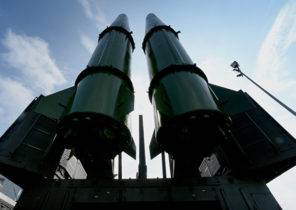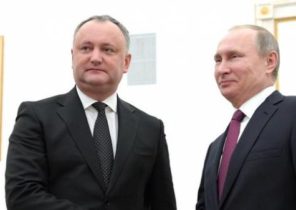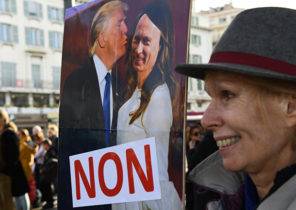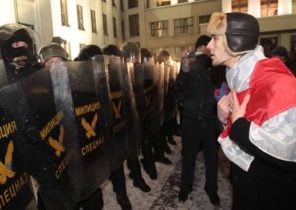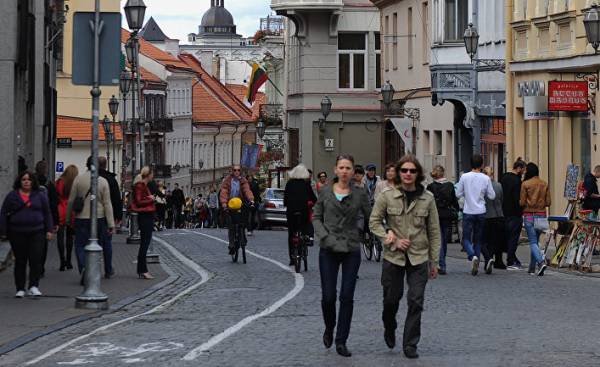
Yes, and again — the Jews. While there is more of us. Essentially about Vilnius, part of which they were and are now — we. And this time not about repentance, guilt and loss, on the contrary — that we can still return. About how our perished Jews could still be of use.
About Vilnius
I love this city and always say to my foreign friends: it is its hidden gem. When you need peace, he is calm. When you want the noise and the violence — he’ll find something to offer. Beauty is in the throat, stone and live — old architecture, beautiful men and women, in a word, there is something to see. For a long time these my admonitions ran into a wall correct excuses: “we will certainly come someday.” Ever — ever. And suddenly — like a burst. As agreed, my foreign friends rushed to Vilnius, excitedly finding out that the city should look at first.
And I got the opportunity to see Vilnius not “blurry” eyes of a local resident, and the eyes of those who came for the first time. And I realized that Vilnius nothing to offer them. Old town — Yes, charms. But this enchantment is hardly enough for half a day. Free evening Saturday night you can spend at the bar. And then what? Museums need visitors, and they have, it turns out, one poorer than the other. On the rusty armor, spears, sickles and coins they have already seen, our art gallery — the local significance of world masterpieces is not, and need rare painting fanatic, connoisseur and gourmet, to satisfy the proposed.
The only jewel theatre. Vilnius theatres — world-rank, and many theatre-goers come just for this: to see Nekrosius, Tuminas, the Koršunovas. Sometimes grumble that there were no captions with the translation, but overall satisfied. Their performances fill the evening leisure, and in the afternoon in search of new experiences they wander to the Museum and theater, with the hope that it is of the same high level as our theater… But then all the same the Museum mustiness. The frozen time and the matrons with her knitting.
On the monuments
We know (by own experience), the ease with which totalitarian regimes have perpetuated the past. And see (already tripped), as it is difficult to make a free society: to speak with monuments, museums, not bringing shame on themselves and yawn at the stranger. How to capture and make sense of freedom? To put it a separate monument in the town square or to live in the city itself — its buildings, streets, parks and people? So far, in my opinion, a monument to Frank Zappa — the most successful manifestation of our freedom. Or — kiss trump and Putin.
But the Tones were not lucky. Because it is difficult to reconcile with modernity, the overwhelming authority of the national Patriarch. Do it conservatively and it wouldn’t be very different from those of the Soviet idols, which were made in Vilnius. And to put it boldly and freely, as required by artistic expression, will not allow the majority of society, still traditional devotional tastes. And many of the defenders of the sculptures on the Green bridge scarecrows not the fate of the sculptures themselves, and the void that will open after they are deleted. After all, the vases with flowers is just a temporary solution. And then — what and how to replace them? No idea. Perhaps it is to destroy the bridge and build a new one?
And we’re not the only one who has this post-Soviet dilemma: how to fill the empty parks and squares (bridges) that is relevant, tasteful, in the spirit of freedom. A year ago we discussed this in Kharkiv. Some of the “Westerners” posed a provocative question to local artists: what they would like to replace just the ruined statue of Lenin? Some time all were silent until one Ukrainian did not remember that in any of the Baltic capitals, “it seems that in Riga”, on the former Lenin square, now ears of rye field. Then of course, I rushed to clarify: not in Riga, but in Vilnius. And to share this extraordinary event is a complete mixture of feelings that is going on in you when in a large city you suddenly catch the smell of rye is unthinkable.
And then approach this plot is in the center of your capital worried the rye. Everyone was so shocked that I even hid the truth: after all, this living installation — temporary. Until then, until you found the solution like this area to comprehend. But the Eiffel tower is also promised to be temporary until I become a symbol of Paris. And we sometimes lacks confidence in themselves, and perhaps, taste and Outlook that we see and appreciate us as a creative masterpiece and in no hurry to change it to heavy monument of dubious artistic and tourist value. In short, I feel sorry for this rye, but I’m not about that.
About the Grand Vilnius
I think there’s one more thing for which we are so strained and clumsily decorate Vilnius not find an accurate reflection in it. We are new settlers. Difficult to find a citizen whose local roots would reach deeper end of the war. There are, but very few of them. Therefore, no matter how much we loved Vilnius, his spirit and appearance, to the end we do not perceive him. We live in a small, cozy, European capitals and if you want to realize a different, historically a Grand Vilnius, we should get to the depth, to put down roots in his past. And they found the city completely different scale — a different value and weight: the center of a huge Empire, the only true metropolis in the lands of the Grand Duchy.
And even after the partition and absorption of the neighboring Empire, he still has long remained the centre. Regardless of the new administrative division of the province, in the consciousness of the ordinary Russian in Vitebsk began with “Lithuania”. And she was drawn to the Bialystok and Brest-Litovsk in the West. What can we say about the local Lithuanians (about us), Litvinov (present-day Belarusians) and the Litvaks (Jews of the Grand Duchy): for Lithuania remained where it was as the center of Vilnius. And all this is able to ignore one-another generation of settlers, but the third, the fourth fails, you can’t. Their urban roots strive to squeeze under the street pavement, because they do not feel themselves outsiders. They this city believe her, though, and feel that it is incomplete, something in him held back.
The Jews
Well, what’s our Jews? I’ll try to explain, to complete this puzzle. Last year was considered a great breakthrough, the explosion of the Lithuanian identity: we have found the strength to turn to our Jewish. However, only to their graves, for what is left, and yet… It was bold, and bright, and the air in Lithuania has significantly cleared. On the other hand, we did what we had long waited, i.e., was obliged to make free, self-respecting and who are concerned about justice country: to pay tribute to their fallen (ruined) citizens. In fact, we haven’t even done it, moved in that direction.
Still need to name names of murderers and instigators of murder, and some of them removed from the pedestal, to clean them from the guerrilla movement that wormed there criminals do not cast a shadow on post-war resistance only when justice will be complete. Believe that soon will happen, because this is an inevitable step towards the true values. But you can step even further, to amaze himself and the whole world: to do something no one expects. Finally dared to utter: Vilnius need a big, contemporary Jewish Museum. A Museum dedicated not only Vilna Jews, but the Jews of the Principality, all Litvaks, their local history and life.
This is already in Warsaw, in Berlin. It is a Museum entirely new type of Museum — a work of art, many masterpieces in one, extremely interactive, based on the most advanced technologies. No wonder they are besieged by crowds of visitors — both locals and newcomers. And it’s not just an act of contrition, a tribute to Jews for their suffering. In these cities, they have become the most visited objects, and often in Berlin and Warsaw, go exclusively for them. This means that visiting somewhere and sleep and eat… All of it is pragmatic and far-sighted. Of course, it is also a monument. The best you can be. And a reminder of the disaster which occurred. This is the story of the life and death of the local Jews.
But it is strange and surprising: when you get to those limits, where talking about the Holocaust, there is serious envy. And thanks to the poles and the Germans — because they talk about it: openly and relentlessly effective means. And not only about the Jews. The hardest thing was to see pictures of all executions in the us in Panerai. Think: why are they here and not in Vilnius. It seems that you now expose, you will understand that you are a Lithuanian and pressed to the wall, I ask: why are you silent? Where your Museum is built with the same scale, with the same zeal with which Jews were killed? Clearly, all this phobia. No one will ever dare say so. Unless we do it ourselves. Still, the massacre refers to the inexplicable, akin to karma, and it is necessary to clean such karma. Here’s what I have: Warsaw and Berlin, with such museums, look a lot cleaner than us who have no such. And not have to immediately whine that the Vilnius of today is very small, and Lithuania are too poor and weak for such a feat. Lithuania doesn’t even have to carry this burden alone.
There are not only fabulously famous and fabulously rich Litvaks, for which support such a Museum would not only honor, but also a matter of life. Museum telling about their ancestors and also standing on the land where they lived and died. In the center of the earth. Yes, it is in the center, is the first thought which comes to mind: where in other years there was a Large Vilna synagogue. Say so boldly, because I am a layman — a visionary and a dreamer, and I don’t know, is it possible to squeeze this Museum in the old courtyard. And if it turns out that he narrowly and closely, you might think about an open spot in the center. Though near the Palace of sports, where the old Jewish cemetery. Or where it was planned Guggenheim Museum.
To invite world-class architects, among whom, too, a lot of Litvaks, and treat such a masterpiece of modern architecture, which will be the hallmark of Vilnius: how the famous Sydney Opera house, Dubai “Sail”, London’s “Gherkin” or the Guggenheim Museum in Bilbao. But first we must accept that we even need such a Museum. The Museum, which, through the fate of the Jews would tell the story of Vilnius and the entire Grand Duchy — sunk into oblivion mysterious powers, whose people constituted three tribes: Lithuanians, Lithuanians, Lithuanian Jews. The fate of the latter was the most tragic: there are not left, they are gone, so first of all — about them. And only then — about the others.
Sorry I’m just a writer, not a Mogul, because imagination have drawn spacious rooms with the legacy of the famous Litvak: manuscripts Romain Gary, two or three paintings of Marc Chagall, donated to the Museum, notes the Creator of Esperanto, Dr. Zamenhof, stories about the Vilna Gaon, perhaps the most famous velankanni. And everywhere the music. At one end — Bob Dylan in the other — Leonard Cohen, somewhere-the violin of Jascha Heifetz. And next — the whole history of Lithuanian Jews: and when they came here, what lived, what they ate. The opportunity to virtually travel to any place of Lithuania and Belarus in every possible way and their “obdurate” and then in the Museum’s restaurant really try litwicki meals. Utopia? I don’t think. If it became flesh in Warsaw and Berlin, — we are worse than them? I believe we can. In a short period of freedom we have built so many shopping centres and entertainment arenas, so maybe it’s time to acquire and one Museum? They all gasp. Wow! — and exhaled. And yet you, Lithuanians, cool! I do not believe. We’ve been dreaming about Lithuania is the regional leader.
And this is the chance — to seize moral leadership. Finally, it’s about Economics — a new way of Lithuania, attracting investment. Lithuania with such Museum would have been completely different in the eyes of the powerful. Because it is more than a Museum. Even more than the monument. This would have been the position. And yet it is only a dream, an idea, floating in the air, there are no funds, interests, initiatives addressed to this Museum. So, he does not belong to anyone, and thus anyone who is infected with this dream. Therefore, all who have thoughts, and especially those who have the power to decide, shaping the image of Lithuania — take and build. For Vilnius without such a Museum will be forever incomplete. Not completed. Not mastered. Our Jews here not only lived they still, with all that this city is built and made, so like it or not — they chopped the roots will be hard to get out from under the ground. The only solution is to graft them to themselves. This does not mean that we will become Jews — just become stronger, deeper and higher, ceasing to be settlers. And then it will not be a Museum — a monument to Them. It will be a Museum about Us. In other words, about us and for us, the citizens of Vilnius past and present.
